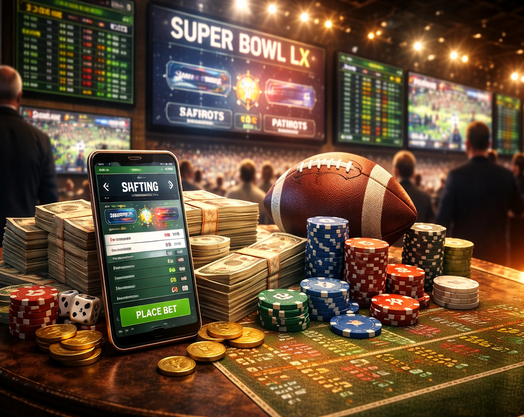Glossary Term
Natural Hand
Natural Hand
Used In: Blackjack
Introduction
Few moments match the thrill of being dealt a Natural Hand—an Ace paired with a ten-value card. This two-card 21 is more than just a strong start; it's the best possible hand in the game, often earning a premium payout and immediately ending the round in the player’s favor. For seasoned players and casual gamblers alike, the Natural represents both a statistical rarity and a moment of pure advantage in a game largely defined by slim margins.
The Natural Hand isn’t just a lucky break—it’s a fundamental part of blackjack’s strategic and economic structure. Casinos traditionally reward Naturals with a 3:2 payout, though recent trends have seen some tables reduce this to 6:5, subtly increasing the house edge. This change, while seemingly small, significantly impacts long-term player returns, especially for those who rely on basic strategy and card counting to reduce the house advantage.
Understanding the role of the Natural Hand goes beyond excitement at the table. It speaks to broader dynamics in game design, probability, and risk management. From influencing player behavior to shaping the profitability of blackjack for casinos, the Natural is a key feature of the game—simple in appearance, but complex in its implications.
Definition and In Depth Look
A Natural Hand in blackjack refers to a two-card combination totaling exactly 21—specifically, an Ace and any ten-value card (10, Jack, Queen, or King). This is the strongest possible starting hand and typically results in an automatic win for the player, unless the dealer also has a Natural, in which case the result is a push. Due to its statistical rarity—occurring in about 4.8% of initial deals—it carries special payout rules, most often a 3:2 reward, though many casinos now offer only 6:5, increasing their long-term advantage.
The significance of a Natural extends beyond its immediate value. It plays a crucial role in shaping player expectations, house rules, and overall game profitability. In some blackjack variants, a Natural affects decisions on insurance, surrender options, and how dealers are required to act. For serious players, the frequency and payout of Naturals can meaningfully alter long-term strategy and expected return. As gaming analyst Michael Shackleford puts it.
The payout on a Natural is one of the most important rules in blackjack—it’s where fairness and house edge often collide.
Mechanics
Mechanically, a Natural Hand occurs when a player is dealt an Ace and a ten-value card as their initial two cards. Since blackjack is played with one or more standard 52-card decks, the probability of receiving a Natural depends on the number of decks in play and the order of the cards dealt. For example, in a single-deck game, the chance of getting a Natural is slightly higher than in a multi-deck game, due to fewer cards diluting the distribution. Once a Natural is dealt, the hand is automatically resolved: if the dealer does not also have a Natural, the player is paid immediately—typically at 3:2 odds. If both the player and dealer have Naturals, the hand results in a push, and no money is won or lost.
Casinos have introduced variations that subtly alter these mechanics to increase their edge. Some tables now pay 6:5 on a Natural instead of 3:2, which may seem like a minor change but significantly lowers the player's expected return. Additionally, house rules may determine whether the dealer checks for blackjack when showing an Ace or ten-value card, affecting how quickly hands are resolved and whether players make insurance decisions. The speed and outcome of a Natural also depend on dealer behavior—whether they hit on a soft 17 or stand, and whether they peek for blackjack before players act. These small mechanical rules can shift the rhythm of play and the balance of power between the house and the player.
Advantages & Disadvantages
Advantages of a Natural Hand
The most obvious advantage of a Natural Hand is that it offers the best possible start in blackjack—often securing an instant win. This hand not only boosts a player's bankroll without requiring any further decisions but also avoids the risk of busting or facing a strong dealer hand. In games that pay 3:2, it provides a long-term edge that helps offset the house advantage, especially for players using basic strategy. A Natural also influences betting rhythm and player confidence, giving skilled players momentum in session-based play.
Key points:
- Guarantees an immediate win unless tied by a dealer’s Natural
- Pays a higher return (typically 3:2), enhancing long-term player value
- Reduces decision-making and risk during that round
Disadvantages of a Natural Hand
Despite its strength, the Natural Hand comes with a few limitations, especially under modern casino rules. Many tables now offer only a 6:5 payout, which significantly reduces its profitability over time and increases the house edge. In cases where the dealer also holds a Natural, the result is merely a push, nullifying what would otherwise be a premium win. Additionally, some players are lured into games by the promise of Naturals, without realizing the broader structural disadvantages embedded in payout changes and side bets.
- Reduced payouts (e.g., 6:5) lower its true value to the player
- Pushes against dealer Naturals can negate winning opportunities
- Can mislead players into underestimating the house edge
Illustrated Example
Imagine a player sitting at a $10 minimum blackjack table with standard 3:2 payout rules. The player is dealt an Ace of Spades and a King of Hearts—forming a Natural Hand. Meanwhile, the dealer reveals a 9 as their upcard. Since the dealer’s downcard is not an Ace or ten-value card, they do not have a Natural. The hand is resolved immediately: the player wins with a Natural and receives a 3:2 payout, earning $15 in winnings on the original $10 bet.
This quick resolution favors the player not only in time saved but also in maximizing returns. In contrast, had the dealer drawn a Natural as well, the result would have been a push—no win, no loss. This scenario illustrates how even a rare hand like a Natural is governed by specific rules and outcomes, making it both powerful and subject to limitations. Here's how the result plays out numerically:
| Player Hand | Dealer Hand | Bet | Payout | Result |
|---|---|---|---|---|
| A♠ + K♥ (Natural 21) | 9♣ + 7♦ = 16 | $10 | $15 (3:2) | Player Wins |
Common Misconceptions
One common misconception is that a Natural Hand always guarantees a win, regardless of the dealer’s cards. In reality, if the dealer also holds a Natural—an Ace and a ten-value card—the hand results in a push, and the player receives no payout. Many novice players mistakenly believe that their Natural beats the dealer automatically, leading to confusion or frustration when no winnings are awarded. Another related myth is that players can “beat” a dealer Natural with a Natural of their own, but the game rules are clear: equal Naturals cancel each other out, regardless of who received it first.
Another widespread misunderstanding involves the payout structure. Many players assume all Naturals pay 3:2, not realizing that some casinos now offer only 6:5 or even even-money payouts under certain conditions. This change can significantly reduce a player's long-term returns. Some also mistakenly believe that taking insurance protects a Natural Hand, when in fact insurance is a separate side bet that doesn't improve the value of the Natural itself. These misconceptions often result from unclear signage or a lack of awareness about shifting house rules, underscoring the importance of understanding game variations before playing.
Conclusion
The Natural Hand stands as a symbol of both opportunity and complexity in the game of blackjack. While it offers the highest possible opening advantage, its true value depends heavily on the rules of the table—particularly payout ratios and how ties with dealer Naturals are handled. For players, understanding the mechanics, advantages, and limitations of a Natural is essential not just for maximizing returns, but for avoiding costly misconceptions. In a game where small percentages make a big difference, even a seemingly perfect hand deserves careful scrutiny.
The Top Online Casinos for Blackjack Gambling
For avid blackjack enthusiasts seeking the top online casinos, a combination of factors sets certain platforms apart. These leading online casinos offer0 a diverse selection of blackjack variants, seamless gameplay experiences, generous bonuses tailored to blackjack players, and stringent security measures to ensure fair and safe gaming environments.
No results were found!


Author
Branimir Ivanov | Senior News Contributor







